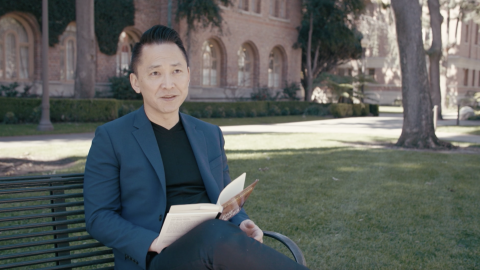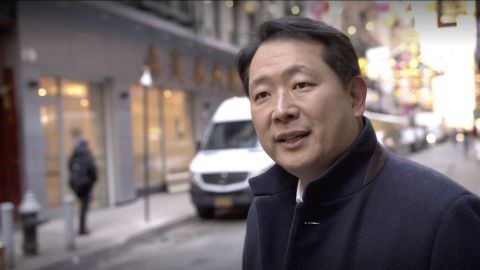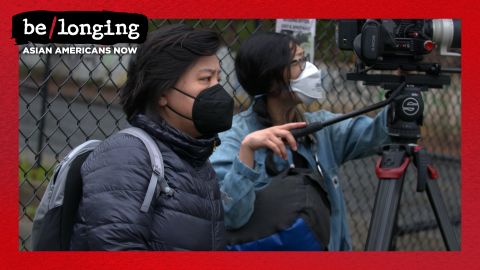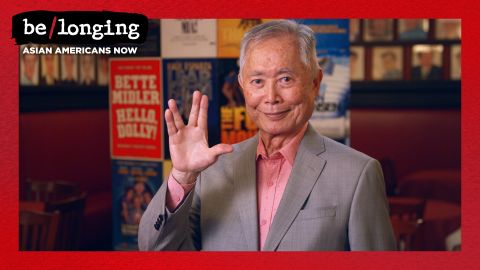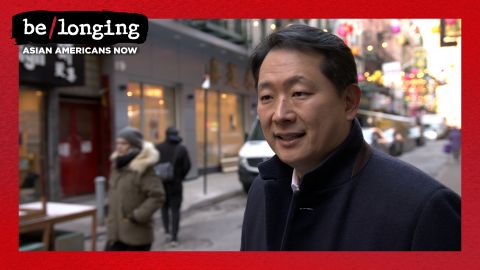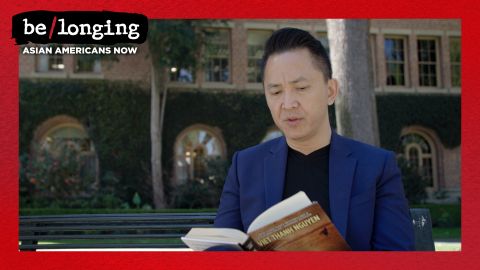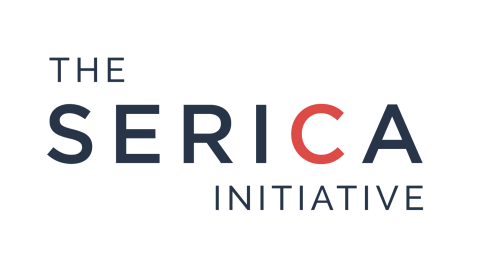Gia Vang: When I moved here in 2019, I did say it’s a little bit of coming home, even though I’ve never lived here. Hmong people are so connected and there is this like feeling in your body really that like you are Hmong. And so, you’re like one of us.
Tsong Tong Vang: Some people just say “maybe you’re Chinese or whatever,” but they have to know who we are and who I am. I’m Hmong, I came from Laos.
Graphic
The Hmong are an ethnic group, originally from China, who migrated to Southeast Asia in the early 1800s.
KaYing Yang: The Hmong community have contributed tremendously to the United States, even before we set foot in this country as foot soldiers for the CIA back in the 1960s and 70s.
Graphic
After the Vietnam War, many Laotian Hmong, having fought with the US, feared for their safety and fled to the US.
The Hmong community in St. Paul, Minnesota is the largest anywhere in the US.
KaYing Yang: When we came to this country, I think our communities struggled a lot from the trauma.
ThaoMee Xiong: I am a Hmong refugee. And what I know about being a survivor of war is that we are resilient.
ThaoMee Xiong: Since the pandemic started in March of 2020, Asian Minnesotans have experienced significant challenges. While trying to survive the economic downturn and then trying to survive also just the community’s pressure of blaming Asian Minnesotans for the coronavirus, our community is really struggling right now.
KaYing Yang: I want to make sure that our community, even though we do not have the economic power, that we have the political power, right? And so, this is the kind of democracy that we want to build.
Nelsie Yang: Our house got foreclosed during the recession. It was one of the most devastating experiences that my family we’ve ever had to go through. And I knew that in a world where working class people didn’t have policies protecting them, that it would continue to harm families just like mine. So when I was elected in 2019, I became the first Hmong American woman and also the youngest council member. I was 24 at the time.
Gia Vang: I think Nelsie is a good example of the future of what we can see with the Hmong community, showing us that we can be a woman who is loud and opinionated and has policies in mind to make it a more equitable society. And she is doing that.
Nelsie Yang: When I went to college, there was always this assumption that because I was a person of color, that I was from out of the country. It was very, very offensive. It was also hurtful too to see that racism be played out, whether it was subtle or whether it wasn’t, that pain is still felt.
KaYing Yang: Asian-Americans have been experiencing racism throughout the history of Asians in America.
Tsong Tong Vang: I feel that we have total rights to be here. But now my community will be a target.
Gia Vang: I got a Facebook message from my dad on March 19th and it read: “This woman was driving by when I was dropping off my grandchild at the bus stop in East Side in East Saint Paul. And she was yelling and screaming at me.”
Tsong Tong Vang: “We hate Asians and let’s go back where you came from.”
Gia Vang: “You need to get out of this country. You need to go or I’ll kill you.” Something to that effect. And this was shortly after the Atlanta spa shootings. And so it was just very raw. Asian-American, the umbrella is huge, and we have disparities within that community. So how do we bring in all these different groups and say, we’re all Asian and you should be proud to be Asian no matter what.
Newscast: A social post about one of our newscast segments has gone viral.
Newscast 2: It started when Michelle Li ended a New Year’s Day food segment with the comment, I eat dumpling soup. That’s what a lot of Korean people do.
Caller: She was being very Asian. And I don’t know, she can keep her Korean to herself.
Michelle Li and Gia Vang: Hi. Hi.
Gia Vang: Michelle got that nasty phone call and I reached out to her in a message and she said:
Michelle Li: I think for me, it just felt like shock that something was wrong with me being very Asian, you know?
Gia Vang: And I was like, Yeah, that’s not okay. And it is again, like the other-izing of us after that she posted it on on Twitter and I just tweeted back, You know what? I am hashtag Very Asian too. And it just really went like wildfire after that.
Graphic: #VeryAsian Gia and Michelle teamed up to start the VeryAsian Foundation. The sales of their merchandise benefit Asian American journalists.
Crowd chanting: What’s his name? George Floyd….
Graphic: The murder of George Floyd and Daunte Wright, both in Greater Minneapolis, spurred the Hmong community and other minority groups to forge alliances to support one another.”
KaYing Yang: I have seen the Hmong-American community grow from a refugee community to a powerful political force here in the state of Minnesota.
KaYing Yang: Allyship is really critical to build safe and welcoming communities. My hope is to continue to work across racial communities because I think this is the future as we have to build strong cross-racial collaborations and partnerships.
Olushi Omeoga: The same systems that enact the violence on Black people is the same systems that enact violence on Asian American folks as well.
Gia Vang: How do we then bridge that we all are in this together, and that our liberation is tied, and that we are happier, we are more joyful, we are more fuller human beings when we are supportive of each other.
Nelsie Yang: We’re not different from anyone else. We may look different and have different stories and experiences and identities, but at the end of the day, we all want the same things.

